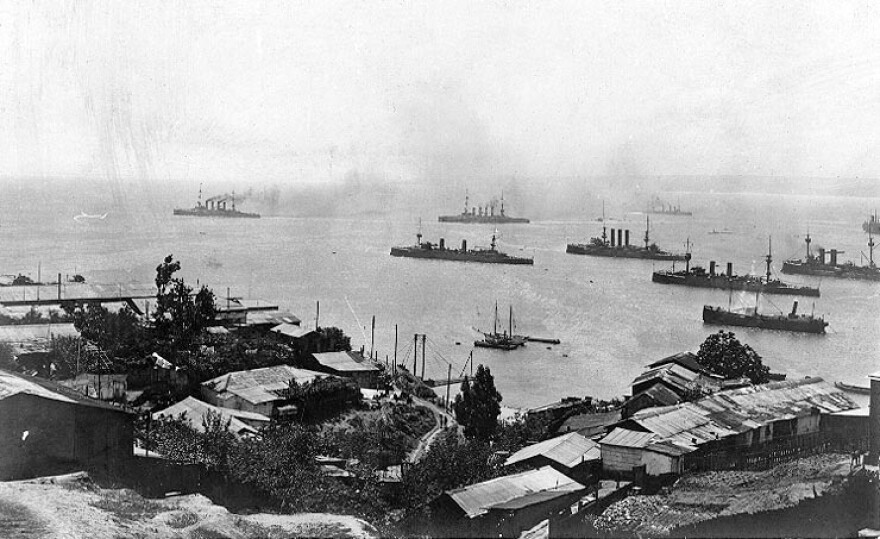Ninety seven years ago: the guns fell silent on the Western Front on the eleventh hour of the eleventh day of the eleventh month. The First World War transformed Europe, the Middle East and parts of Africa - and while the Pacific was a minor theatre in the conflict, it did play a part, including, as we hear from Neal Conan in the Pacific News Minute - the first naval battle of the conflict.
Like other colonial powers, Imperial Germany maintained a naval squadron in the Far East. When the war erupted in August, 1914, Admiral von Spee's little force found itself on the wrong side of the world, and once Japan decided to side with the allies - it was hopelessly out numbered with no choice but to head for home.
Spee's five cruisers vanished into the Pacific for months, but a British Squadron finally found them on a squally afternoon off the coast of Chile. In what became known as the Battle of Coronel, The Germans sank two British cruisers with all hands lost - about 1600 men. The Royal Navy's first defeat in a hundred thirty five years. The German triumph was short lived - Spee's ships were themselves destroyed a couple of weeks later at the Battle of the Falklands.
The clear winner of the First World War in the Pacific was Japan. It seized Germany's three island colonies: the Marshalls, the Carolines and the Marianas - and more important, it captured Germany's holdings in China. The port of Tsingtao and the Shandong Peninsula. At almost no cost to itself - Japan emerged from the First World War as a Great Power. At the post-war treaty negotiations in Versailles - Japan sat as one of the Big Five, but alarmed its allies by pressing its interests in China. Eventually, Japanese aggression in China undercut those alliances and it would find a new partner in a resurgent Germany.





